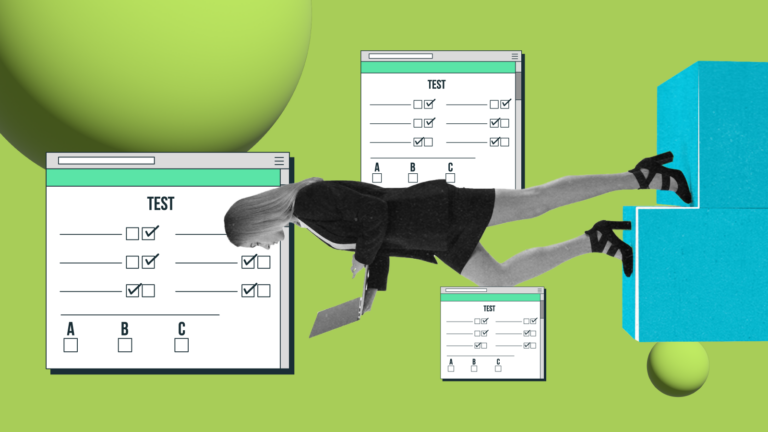
Essential skills every HR professional needs [2025 Guide]
Human Resources professionals are no longer just paper-pushers or policy enforcers. They’re strategic partners, culture shapers, and tech-savvy innovators. As we approach 2025, the landscape of HR is evolving at breakneck speed and those who don’t keep up risk being left behind.
This guide is your roadmap to mastering the essential HR skills that will not only keep you relevant but position you as an indispensable asset in your organization. Whether you’re a seasoned HR veteran or just starting your journey, buckle up – we’re about to dive into the future of HR and the skills you need to thrive.
Introduction to essential HR skills
Human Resources has undergone a seismic shift in recent years, transforming from a support function to a strategic powerhouse within organizations. As we look towards 2025, the skills for HR professionals are more crucial than ever, shaping the success of businesses in an increasingly complex and digital world.
The evolution of HR: From administrative to strategic roles
Gone are the days when HR was synonymous with paperwork and policy enforcement. Today, HR professionals are expected to be key players in driving business strategy and organizational success. This evolution has been driven by several factors, including globalization, technological advancements, and changing workforce demographics.
In the past, HR tasks were primarily administrative – managing payroll, maintaining employee records, and ensuring compliance with labor laws. While these responsibilities remain important, they’re now just the tip of the iceberg. Modern HR professionals are involved in strategic decision-making, talent acquisition and development, organizational design, and fostering company culture.
This shift has expanded the scope of human resources skills needed. Today’s HR leaders must possess a blend of business acumen, technological savvy, and people skills. They’re expected to understand the intricacies of the business, align HR initiatives with organizational goals, and use data-driven insights to inform decisions.
The importance of adapting to the digital age
As 2025 approaches, the digital transformation of HR is not just a trend – it’s a necessity. The rapid advancement of technology is reshaping how we work, communicate, and manage talent. For HR professionals, adapting to this digital age is crucial for staying relevant and effective in their roles.
One of the key HRs skills and competencies now is the ability to leverage technology to streamline HR processes. This includes mastering Human Resource Information Systems (HRIS), understanding the potential of artificial intelligence in HR, and using data analytics to gain insights into workforce trends and performance.
Moreover, the digital age has brought about new challenges in employee engagement, remote work management, and digital learning. HR professionals must be adept at using digital tools to foster collaboration, maintain company culture in virtual environments, and facilitate continuous learning and development.
Adapting to the digital age also means staying ahead of emerging trends. From blockchain for secure record-keeping to virtual reality for immersive training experiences, HR professionals need to be curious and open to exploring new technologies that can enhance their work.
In essence, the importance of adapting to the digital age cannot be overstated. It’s not just about keeping up with technology – it’s about harnessing its power to transform HR practices, improve employee experiences, and drive organizational success. As we move towards 2025, the most successful HR professionals will be those who embrace digital transformation and use it to elevate their role within their organizations.
Core competencies for HR professionals
As we delve into the essential human resources skills and competencies, it’s crucial to understand that the role of HR has evolved significantly. Today’s HR professionals need a diverse skill set that goes beyond traditional administrative tasks. Let’s explore the core competencies that every HR expert should possess to excel in this dynamic field.
Communication and active listening
At the heart of human resource skills lies the ability to communicate effectively and listen actively. These skills are fundamental for HR specialists to build trust, resolve conflicts, and foster positive relationships within the organization.
The role of clear communication in conflict resolution
Clear communication is vital when addressing workplace conflicts. HR professionals must articulate policies, expectations, and solutions in a way that all parties can understand. This skill helps in mediating disputes, explaining complex HR processes, and ensuring that everyone is on the same page.
Enhancing employee relations through empathetic listening
Empathetic listening is one of the critical skills needed for human resources. It involves not just hearing words but understanding the emotions and intentions behind them. By practicing active listening, HR professionals can better understand employee concerns, improve morale, and create a more supportive work environment.
Strategic planning and execution
HR expertise has evolved beyond traditional functions to play a critical role in strategic planning. Today, HR leaders focus on aligning human capital with the overarching goals of the organization, ensuring that every hiring, development, and retention effort directly supports long-term business objectives.
By integrating workforce planning, talent management, and employee development into the company’s strategic roadmap, HR not only enhances organizational effectiveness but also drives sustainable growth and competitive advantage. This strategic approach empowers organizations to make more informed decisions, leverage their talent, and adapt proactively to market changes.
Aligning HR strategies with business goals
HR professionals must understand the company’s overall strategy and translate it into effective HR initiatives. This involves developing recruitment strategies, training programs, and retention policies that support the organization’s long-term objectives.
Creating effective workforce management plans
Effective workforce planning is crucial for organizational success. HR specialists need to forecast talent needs, develop succession plans, and create strategies for managing workforce changes.
In-depth knowledge of HR technology (HRIS and AI Applications)
Technological proficiency has become an essential skill for human resources specialists. In today’s digital-driven workplace, HR professionals must be adept at using technology to streamline recruitment, manage employee data, and enhance workforce analytics.
With skills in HR software, data analysis tools, and digital communication platforms, HR specialists can improve efficiency, make data-informed decisions, and provide better support to employees. This proficiency enables HR to adapt to evolving demands, drive innovation, and contribute to the overall agility and success of the organization.
Leveraging technology for efficient HR operations
HR professionals must be adept at using Human Resource Information Systems (HRIS) and other HR tech tools to streamline processes and improve efficiency. According to recent statistics, 79% of organizations use AI and automation tools in recruitment to streamline processes like resume screening and initial candidate assessments. This highlights the growing importance of tech skills in HR.
Staying ahead: Continuous learning in HR tech
The rapid evolution of HR technology necessitates continuous learning. HR professionals should stay informed about emerging technologies and their potential applications in HR processes.
[EMBED HR Tech Webinar with TeamTailor here]
Leadership and coaching skills
Leadership skills are crucial for HR professionals to effectively drive change within an organization and inspire their teams. Strong leadership allows HR to lead by example, foster a positive workplace culture, and motivate employees to embrace new initiatives.
By demonstrating empathy, clear communication, and a vision for growth, HR leaders can build trust and engagement across departments, facilitating smoother transitions and encouraging collaboration. Ultimately, these skills enable HR professionals to guide teams through challenges, align them with organizational goals, and contribute to a resilient, future-ready workforce.
Building and leading high-performing teams
HR leaders must be able to assemble and guide teams that can deliver results. This involves understanding team dynamics, motivating individuals, and fostering a collaborative work environment.
The importance of coaching in employee development
Coaching is a critical skill for nurturing talent and helping employees reach their full potential. HR professionals should be able to provide constructive feedback, set development goals, and guide employees in their career progression.
Analytical skills and data-driven decision making
In the era of big data, analytical skills have become indispensable for human resource professionals. With access to vast amounts of employee and organizational data, HR specialists can leverage analytics to identify trends, forecast talent needs, and measure the effectiveness of HR initiatives.
By applying analytical skills, HR can make data-driven decisions, enhance workforce planning, and align talent strategies with business objectives. This ability to interpret data and extract insights enables HR to play a strategic role in shaping a competitive and adaptable organization.
Using data analytics for insights into workforce dynamics
HR professionals should be able to analyze workforce data to identify trends, predict future needs, and make informed decisions about talent management.
Making informed decisions based on HR metrics
Understanding and interpreting HR metrics is essential for measuring the effectiveness of HR initiatives and demonstrating the value of HR to the organization.
By mastering these core competencies, HR professionals can position themselves as strategic partners within their organizations. These skills not only enhance individual performance but also contribute significantly to organizational success. As the HR landscape continues to evolve, those who invest in developing these skills will be well-equipped to meet the challenges of the future and drive their organizations forward.
Specialized HR skills setting you apart
Certain specialized skills can significantly elevate your profile as an HR professional. These skills go beyond the basics and delve into areas that are increasingly crucial for modern organizations. Let’s explore these key human resources skills that can set you apart in the field.
Diversity, equity, and inclusion initiatives
A key area of expertise for human resources today is the ability to champion and implement diversity, equity, and inclusion (DEI) initiatives. HR professionals play a vital role in fostering an inclusive culture by promoting diverse hiring practices, developing equitable policies, and ensuring a supportive environment for all employees.
By advocating for DEI, HR not only enhances the employee experience but also contributes to a more innovative, resilient, and competitive organization. Effective DEI initiatives help attract top talent, improve employee engagement, and align the company’s values with its broader social impact.
Creating a culturally sensitive workplace environment
HR professionals must be adept at fostering an inclusive culture where all employees feel valued and respected. This involves developing policies that promote equality, organizing cultural awareness training, and ensuring that diverse perspectives are represented in decision-making processes.
Establishing inclusive recruitment practices
Implementing inclusive recruitment strategies is among the essential skills for HR professionals. This includes writing inclusive job descriptions, diversifying candidate sourcing methods, and training hiring managers to recognize and mitigate unconscious biases.
Expertise in employment law and regulations
A thorough understanding of employment law is one of the most essential skills for human resources professionals. This knowledge enables HR to ensure that the organization complies with legal standards in areas such as hiring, workplace safety, compensation, and employee rights.
By staying informed about changing regulations and legal requirements, HR can minimize the risk of disputes, foster a fair work environment, and protect the organization from potential liabilities. Mastery of employment law allows HR to navigate complex legal landscapes confidently, supporting both the business and its employees effectively.
Staying compliant: A guide to employment laws
HR professionals must stay updated on ever-changing employment laws and regulations. This includes knowledge of labor laws, anti-discrimination legislation, and workplace safety regulations.
Managing risks: Understanding legal aspects of HR
Risk management in HR involves identifying potential legal issues before they arise and developing strategies to mitigate these risks. This skill is vital for protecting both employees and the organization.
Conflict management and resolution skills
Effective conflict resolution is a key skill for human resources professionals, enabling them to address and resolve workplace issues constructively. By managing conflicts with empathy, active listening, and fair judgment, HR can help maintain a positive work environment, improve employee relationships, and prevent minor issues from escalating.
Skilled conflict resolution fosters open communication and builds trust, creating a culture where employees feel supported and valued. This capability not only enhances team dynamics but also contributes to higher morale, increased productivity, and a cohesive organizational culture.
Approaches to effective conflict resolution in the workplace
HR professionals should be skilled in various conflict resolution techniques, including mediation, negotiation, and facilitation. The ability to address conflicts promptly and fairly is crucial for maintaining a positive work environment.
Maintaining workplace harmony through proactive problem-solving
Proactive problem-solving involves identifying potential sources of conflict before they escalate and implementing preventive measures. This skill helps in maintaining a harmonious workplace and improving overall employee satisfaction.
Innovative approaches to enhancing employee experience
Enhancing the employee experience is increasingly becoming a central focus for HR departments. As organizations recognize the link between employee satisfaction and productivity, HR is shifting its approach to create a more engaging, supportive, and fulfilling workplace.
By focusing on areas like career development, workplace culture, and employee well-being, HR professionals aim to improve retention, boost morale, and cultivate a positive environment where employees can thrive. This emphasis on the employee experience not only strengthens loyalty and performance but also positions the organization as an attractive place for top talent.
Onboarding and continuous learning pathways
Creating memorable first impressions through onboarding
Developing engaging onboarding programs that effectively integrate new hires into the organization is a valuable skill. This includes creating comprehensive orientation programs and ensuring new employees feel welcomed and supported from day one.
Promoting continuous professional development among employees
HR professionals should be adept at creating and implementing continuous learning initiatives. This involves identifying défices de competências, developing training programs, and encouraging a culture of lifelong learning within the organization.
Performance management and growth opportunities
Effective performance management is a crucial skill for human resource professionals. This skill enables HR to set clear expectations, provide constructive feedback, and support employee growth, helping individuals reach their full potential within the organization. HR can foster a culture of continuous improvement and accountability through regular performance evaluations, goal-setting, and development planning.
Effective performance management not only enhances individual and team productivity but also aligns employee contributions with organizational goals, driving long-term success and engagement across the workforce.
Setting clear expectations and providing constructive feedback
HR professionals must be skilled in setting clear performance expectations and providing regular, constructive feedback. This includes conducting effective performance reviews and helping employees set and achieve their professional goals.
Facilitating career advancement opportunities for staff
Creating clear career paths and growth opportunities for employees is essential. HR professionals should be able to identify high-potential employees and develop strategies to retain and develop top talent within the organization.
Conclusion: The future of human resource management
As we look toward the future of HR, it’s clear that the skills needed for HR professionals will continue to evolve, especially as soft skills become more important in a high-tech world. While technical expertise is essential, soft skills like empathy, adaptability, and emotional intelligence are increasingly valuable, helping HR professionals navigate complex human interactions in a digital workplace.
The HR landscape is constantly changing, and staying informed about emerging trends, technologies, and best practices is crucial for success. To remain relevant, HR professionals should focus on developing a diverse skill set that blends traditional HR knowledge with emerging competencies, embracing technology, honing strategic thinking, and maintaining a deep understanding of business operations.
By developing these specialized skills, HR professionals can position themselves as invaluable assets to their organizations, driving both employee satisfaction and business success.
Discover how DevSkiller can transform your HR team. Watch our 5-minute demo or sign up for an in-depth session to see how our competency management solutions can foster a culture of excellence and drive sustainable growth.
FAQs about HR skills
- What are the most important skills for HR professionals in 2025? Key skills include strategic thinking, data analysis, technological proficiency, and strong interpersonal skills.
- How can I improve my HR skills? Continuous learning through professional development courses, staying updated on industry trends, and seeking mentorship opportunities are effective ways to enhance your HR skills.
- What technical skills are becoming more important in HR? Data analytics, proficiency in HRIS systems, and understanding of AI and machine learning applications in HR are increasingly important technical skills.
- How important are soft skills in HR? Soft skills like communication, empathy, and adaptability are crucial in HR, as they enable professionals to manage human interactions and navigate complex workplace dynamics effectively.
- What role does technology play in modern HR skills? Technology plays a significant role in modern HR, from automating routine tasks to providing data-driven insights for strategic decision-making. HR professionals need to be comfortable with various HR technologies and understand their applications.




